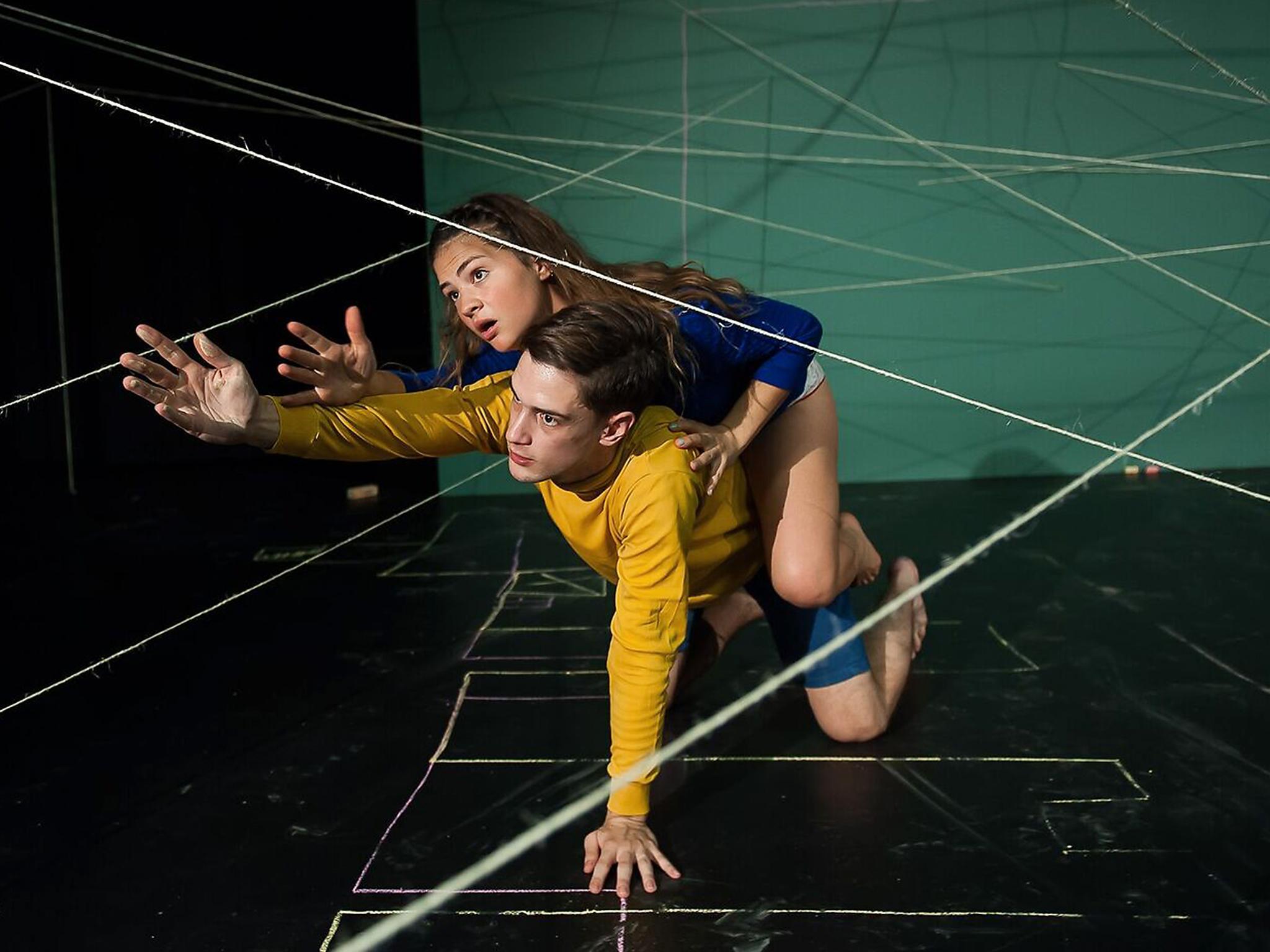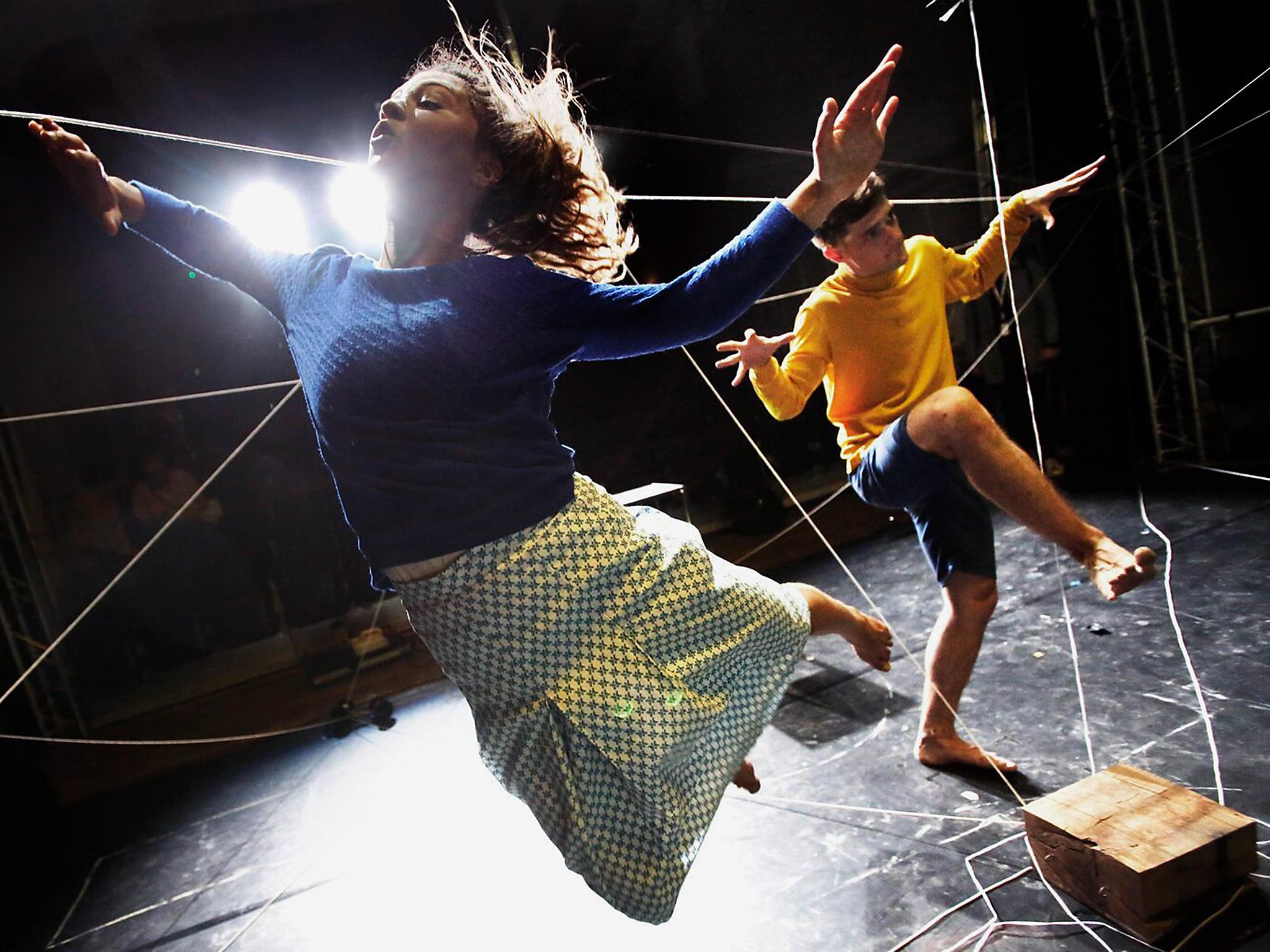Review, Us/Them, Dorfman, National Theatre, London: the story of the Beslan massacre makes for a remarkable, harrowing piece of theatre

On 1 September 2004, the children were celebrating the start of the new academic year at School No 1 in Beslan, North Ossetia (part of the Russian federation). They had brought in balloons at the request of the teachers. The fun was grotesquely terminated when an armed group stormed the building demanding Chechen independence. For the next 52 hours, more than a thousand people – parents, grandparents, teachers and children – were held hostage in the school gym in sweltering conditions, forbidden water and reduced to drinking their own urine. 186 children were among the 334 who lost their lives in the carnage of the siege's chaotic, violent and still-controversial close.
To say that this must have been “three days in hell” is no exaggeration. A terror attack that deliberately targeted innocent children sounds an improbable basis, though, for a piece of theatre, especially one aimed at audiences from the recommended age of 12 upwards. But any misgivings about potential insensitivity or exploitation are decisively allayed by Us/Them. This is a startlingly powerful show, scripted and directed by Carly Wijs and presented by BRONKS, the Brussels-based company that specialises in creating grown-up theatre for young audiences. It was a hit on the fringe at Edinburgh Festival and now has come down for this well-deserved run at the National.
Wijs’s masterstroke is to imagine the ordeal entirely from the perspective of two of the children. Everyone else has been removed from the picture, except as evoked by this pair. They are portrayed by Gytha Parmentier and Roman Van Houtven, young adult actors who, in their expertly choreographed performances, capture the moment-by-moment intentness of childhood without ever condescending to the characters by being cloyingly cute. The kids are keen to reconstruct the events as conscientiously as they can – comically squabbling over the statistics and the school's exact lay-out as they chalk it across the stage.
You could raise hackles, no doubt, by baldly reporting that this piece is playful (sometimes incorporating humour and absurdity). But these are children who are trying to make sense of a profoundly traumatic experience. They reconstruct it in terms that are intelligible to them. So the playfulness has a terrible poignancy. The massive and intricate cat’s cradle of rope that they rush around weaving and the celebratory balloons represent the terrorists’ tripwires and bombs. They try to estimate precisely how many seconds it will be before an army of fathers rides to the rescue, their confidence leaking away during a countdown where disappointment is deferred only by the kind of blatant cheating “…19, 18 and a half, 17...” that we all did in childhood and is here both funny and very affecting.

More complex arithmetical calculations become a way of trying to navigate through this barely comprehensible nightmare as the situation darkens, with dehydration bordering on delirium, and no sign of respite. They keep track of the ratio of terrorists to hostages (35 to 1,139 at one point). The boy records that he has not been to the toilet for 38 hours and 12 minutes and that this is a 191.6 per cent increase on his last time of abstinence when he went camping with this cousins. They compulsively act out for us the tricky life-or-death procedures of the two-hourly shift change of the guards with their foot on the detonator.
Though it’s conveyed in the characteristic matter-of-fact tones of the piece, the mad precision of this is reminiscent of the damaged, obsessional characters in Beckett. We see the adult world’s infliction of trauma on these children through their innocent eyes and the effect is quietly harrowing.
I think that the piece goes astray in the concluding sequence. Early on, we’ve registered with alarm how the children have already absorbed the noxious fairy tale that 75 miles away, on the other side of the border, all the men are paedophiles and the women have moustaches. From parental propaganda, we move in the final minutes to a consideration of how myths are manufactured by the media. The pair tease us with alternative endings. We hear how a girl who had always wanted to appear on television got her wish all over the world with an image of her funeral that became iconic of Beslan’s grief because of an accidentally misinterpreted detail. But this feels too tricky and sophisticated for the children we know. Up to then, this hour-long piece is a remarkable feat of theatre.
To 18 February; 020 7452 300
Join our commenting forum
Join thought-provoking conversations, follow other Independent readers and see their replies
Comments